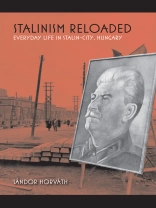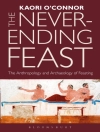The Hungarian city of Sztálinváros, or ‘Stalin-City, ‘ was intended to be the paradigmatic urban community of the new communist society in the 1950s. In Stalinism Reloaded, Sándor Horváth explores how Stalin-City and the socialist regime were built and stabilized not only by the state but also by the people who came there with hope for a better future. By focusing on the everyday experiences of citizens, Horváth considers the contradictions in the Stalinist policies and the strategies these bricklayers, bureaucrats, shop girls, and even children put in place in order to cope with and shape the expectations of the state. Stalinism Reloaded reveals how the state influenced marriage patterns, family structure, and gender relations. While the devastating effects of this regime are considered, a convincing case is made that ordinary citizens had significant agency in shaping the political policies that governed them.
Зміст
Contents
Introduction
I Identities
1. Myths
2. Downtown America
3. Urban Villagers
II Relationships
4. Family
5. Abortion
6. Divorce
III Hierarchy
7. Bars
8. Hooligans
9. Slums
10. Prostitution
Conclusion
Bibliography
Index
Про автора
Sándor Horváth is Senior Research Fellow of the Institute of History at the Hungarian Academy and Primary Coordinator of COURAGE, an international research project that explores cultural opposition in the former socialist countries in Eastern Europe. He also is the founding editor of The Hungarian Historical Review and has published widely in Hungarian on everyday life and socialism.












